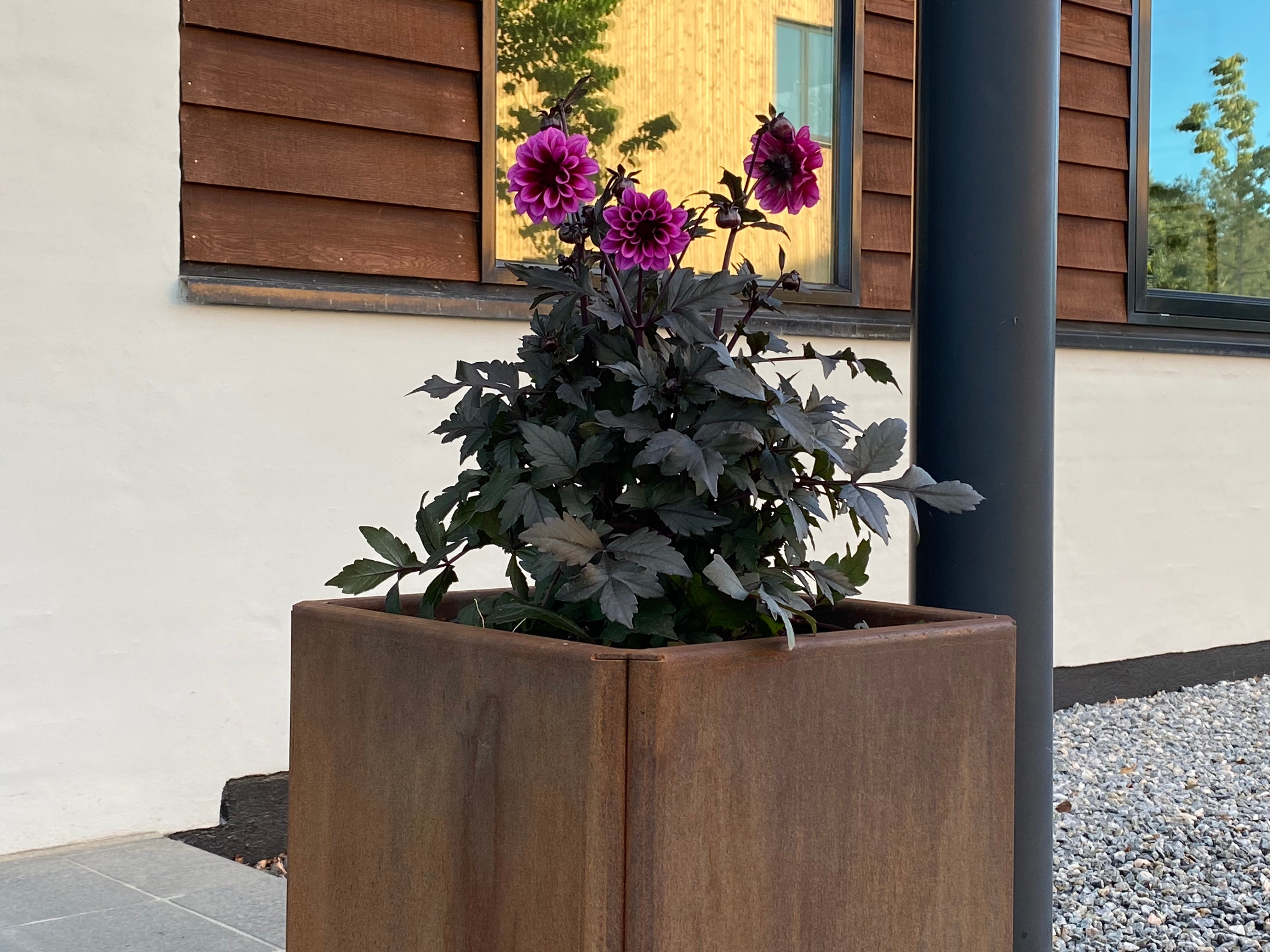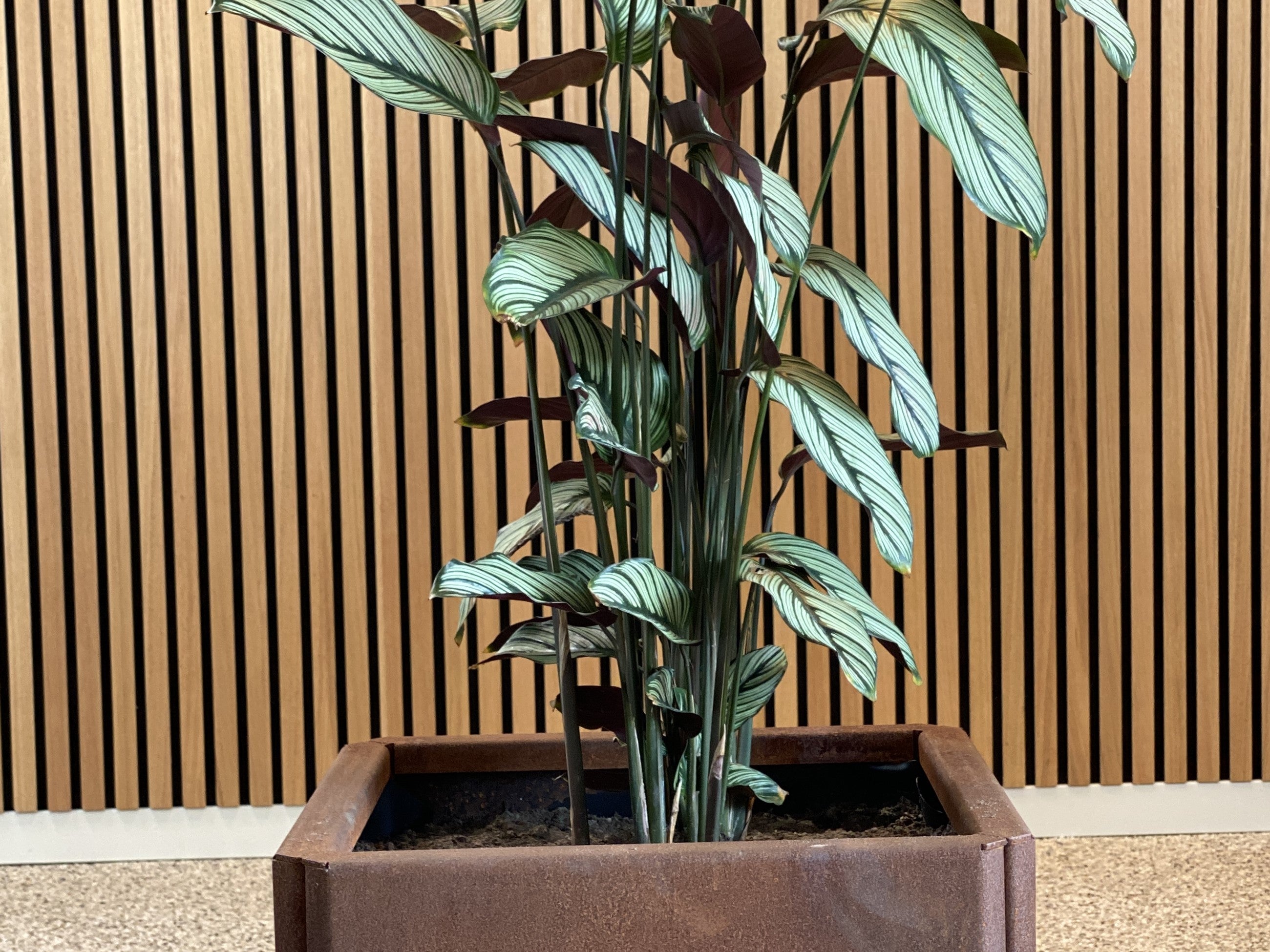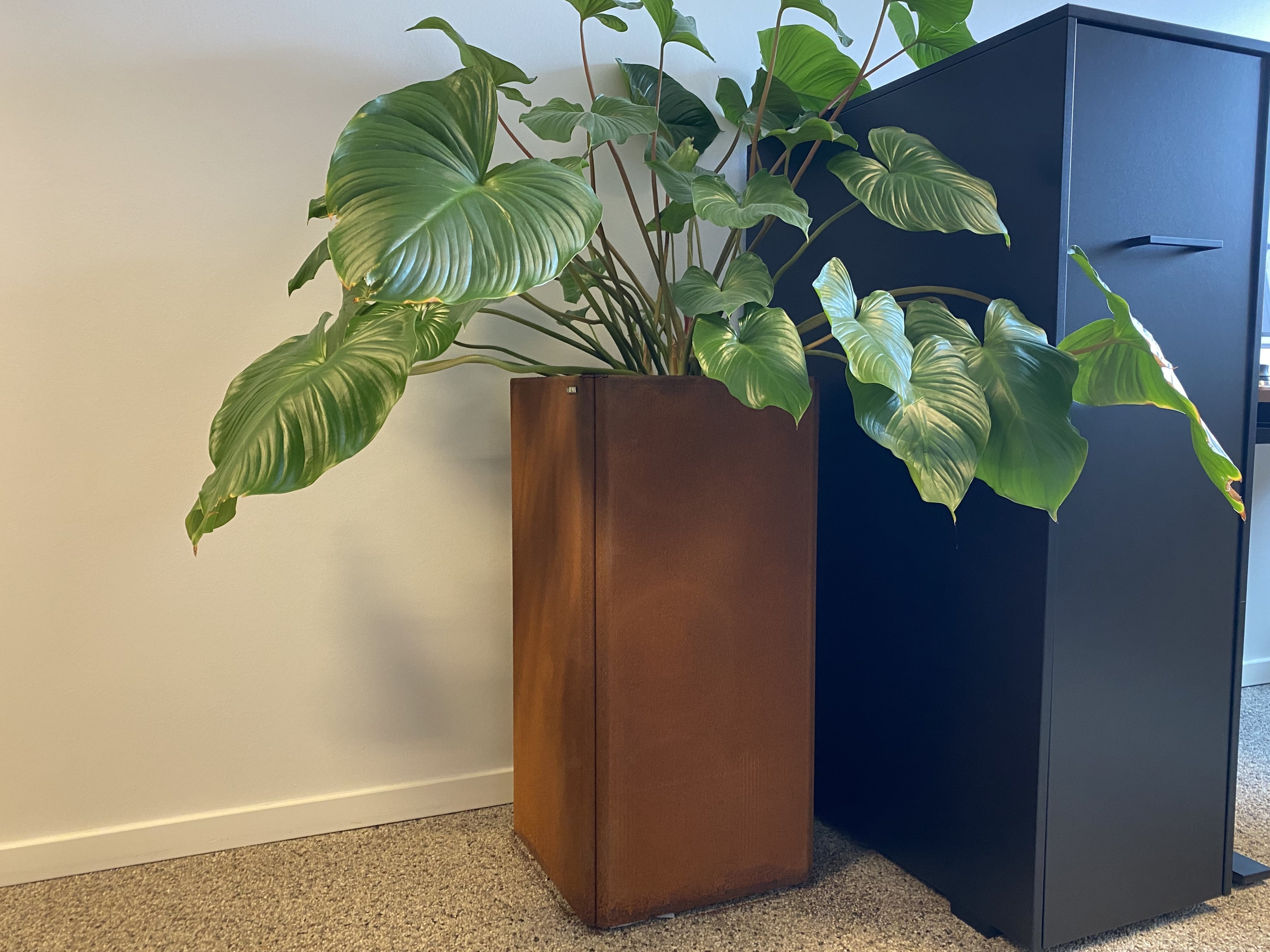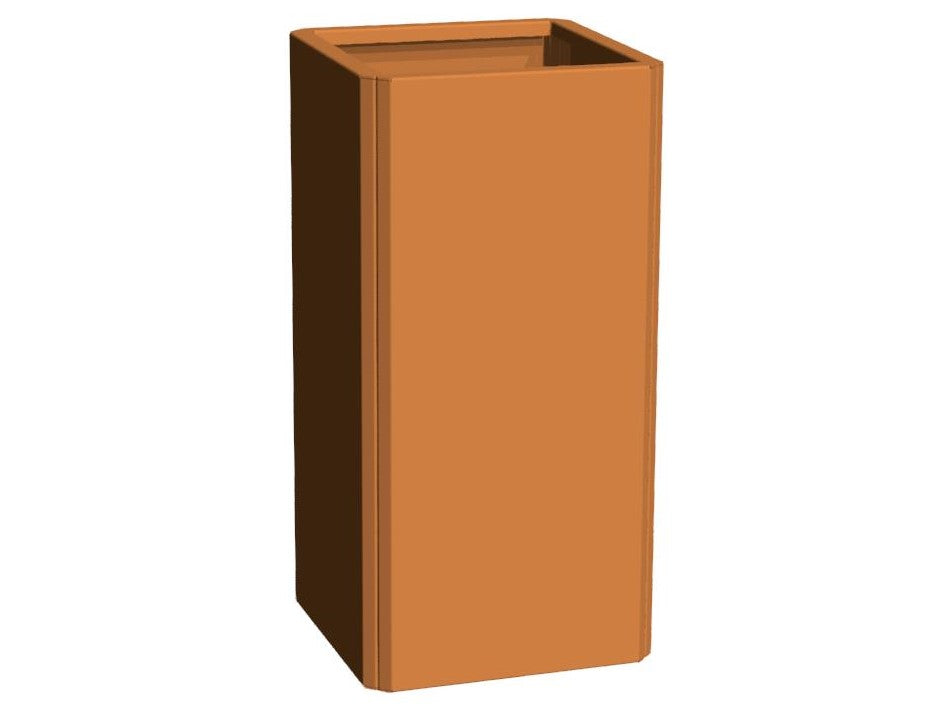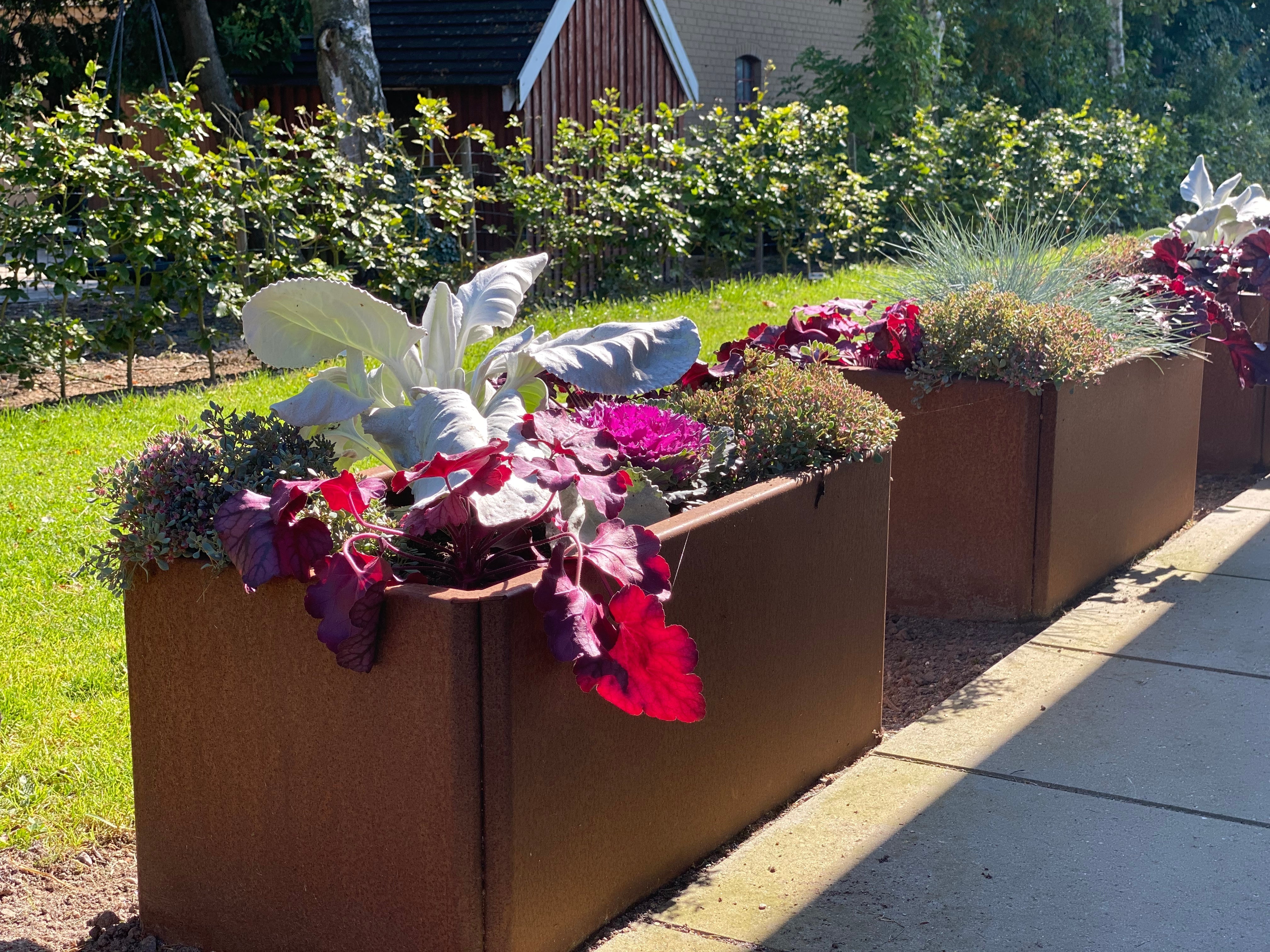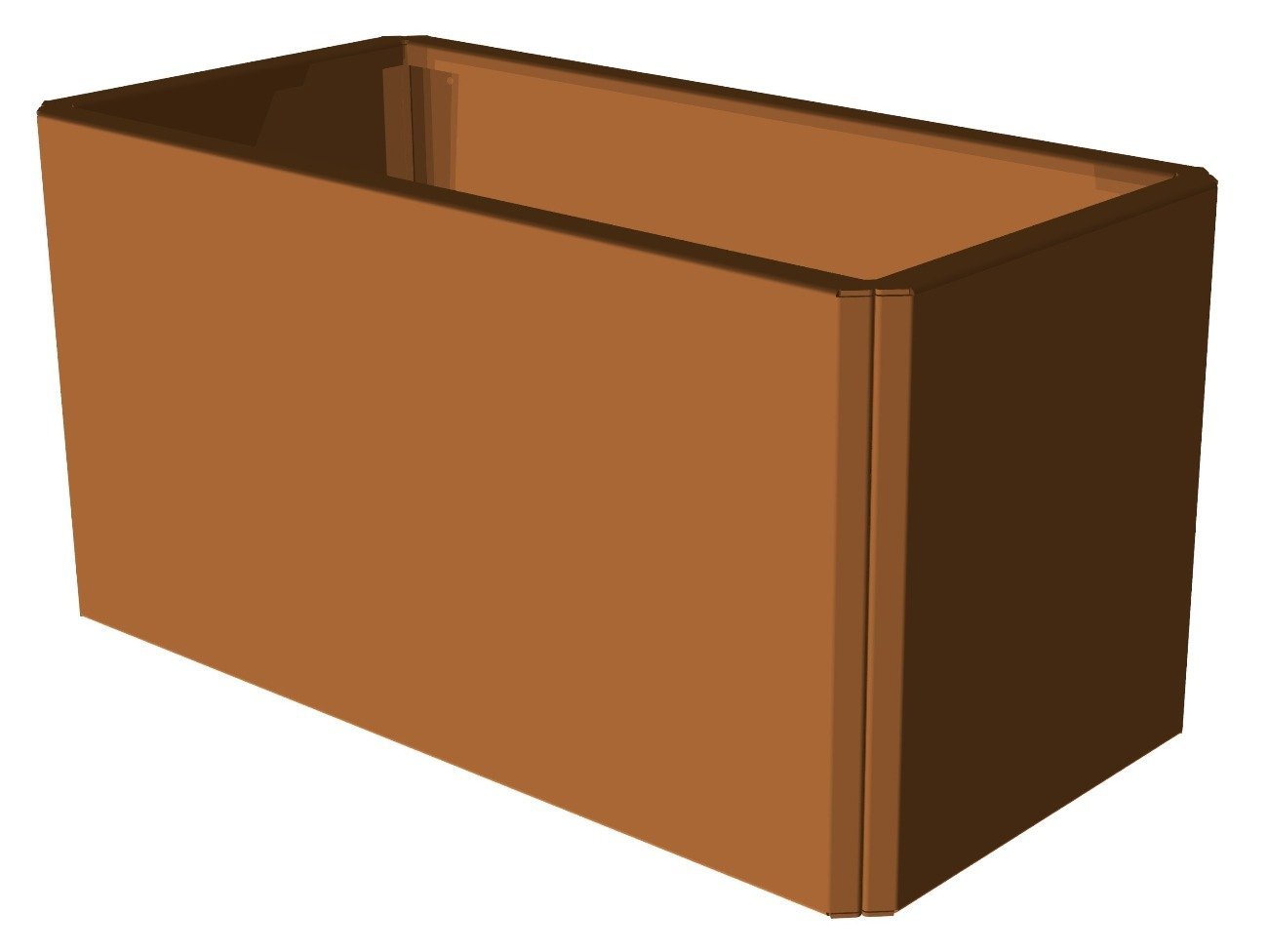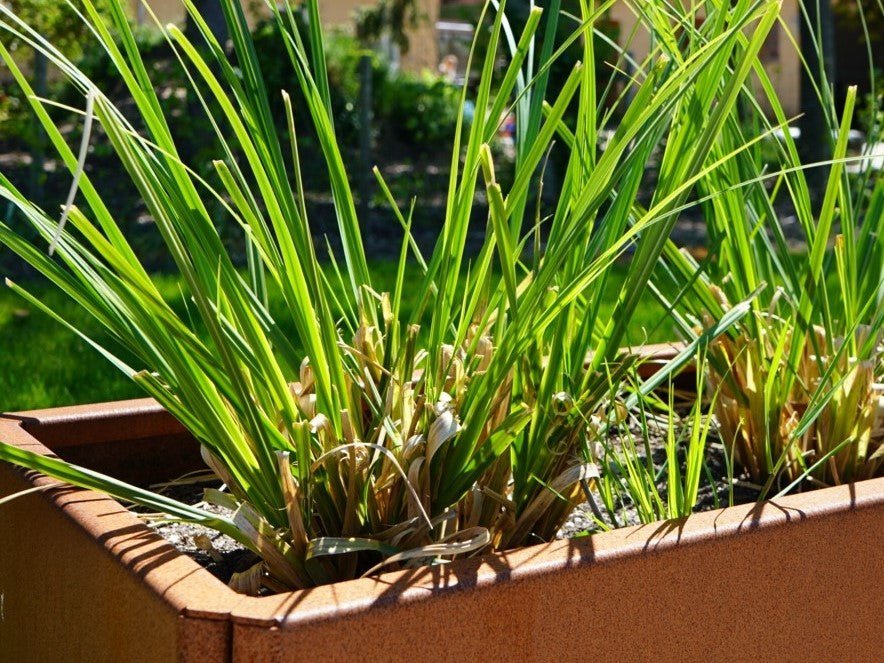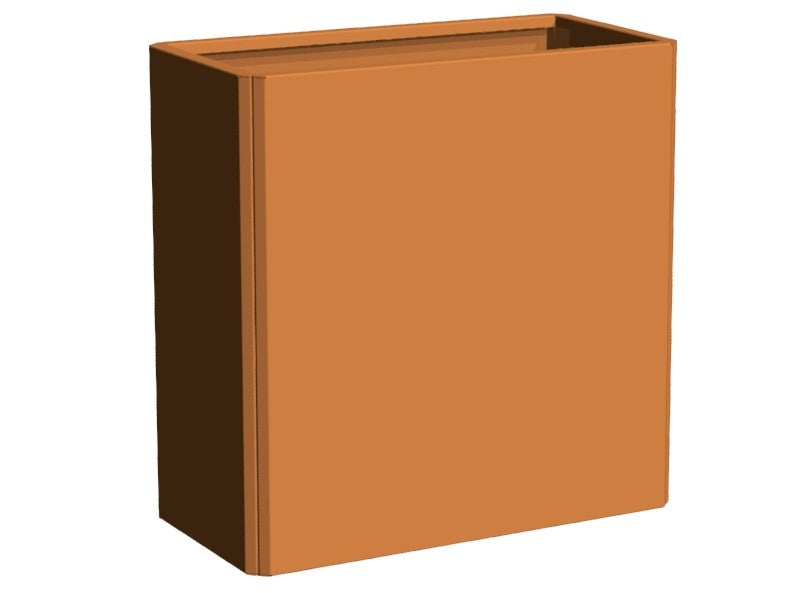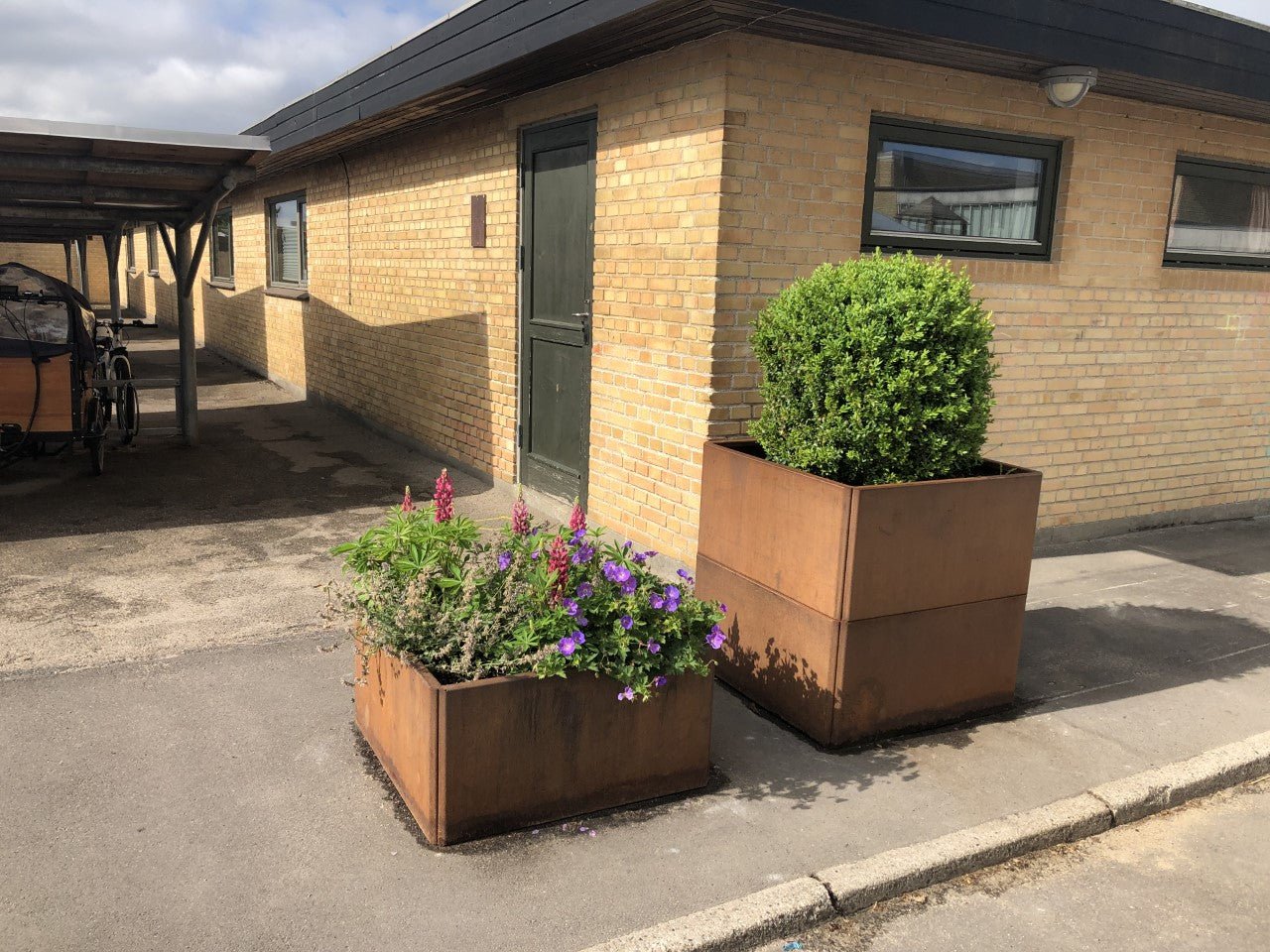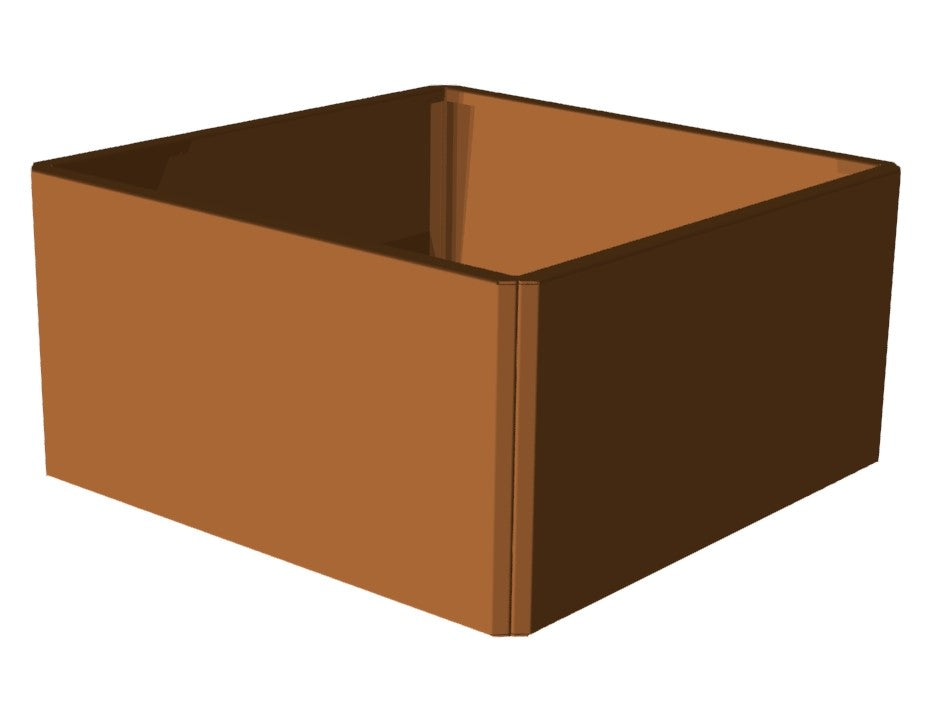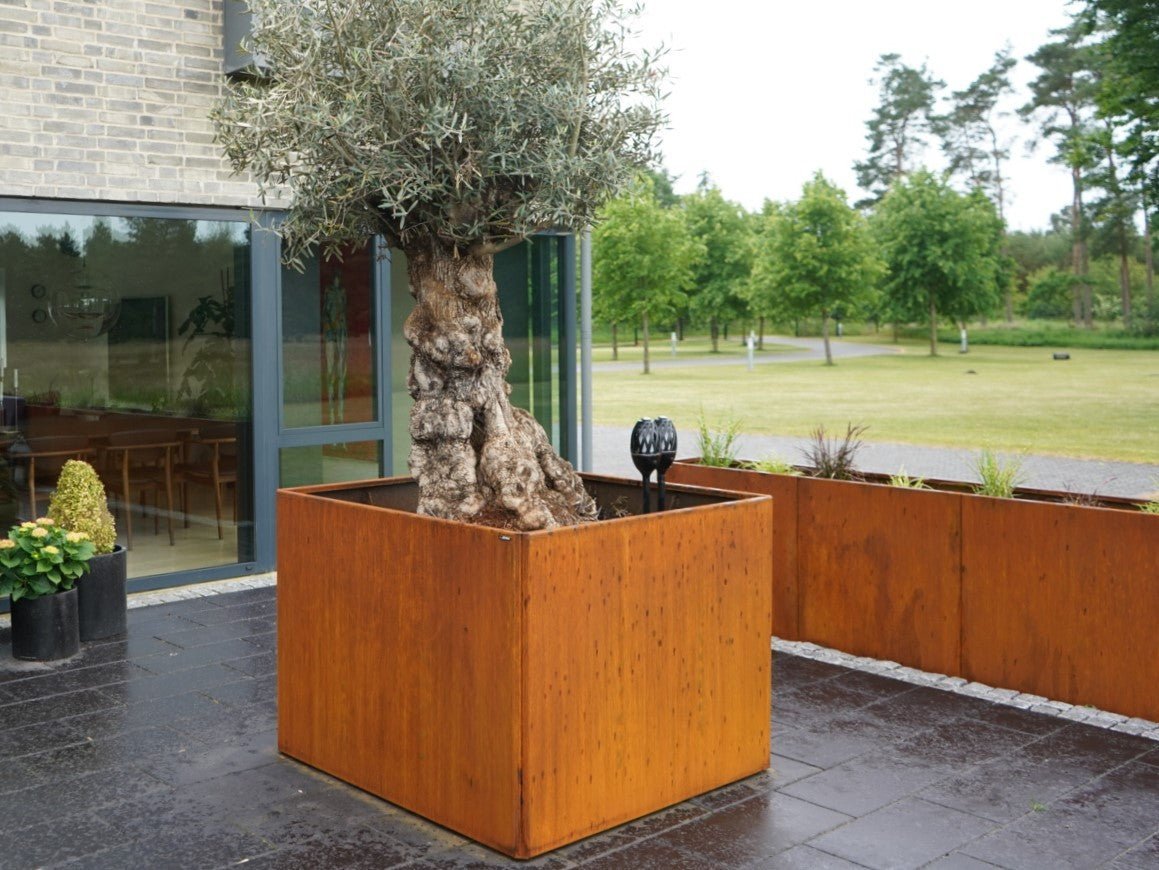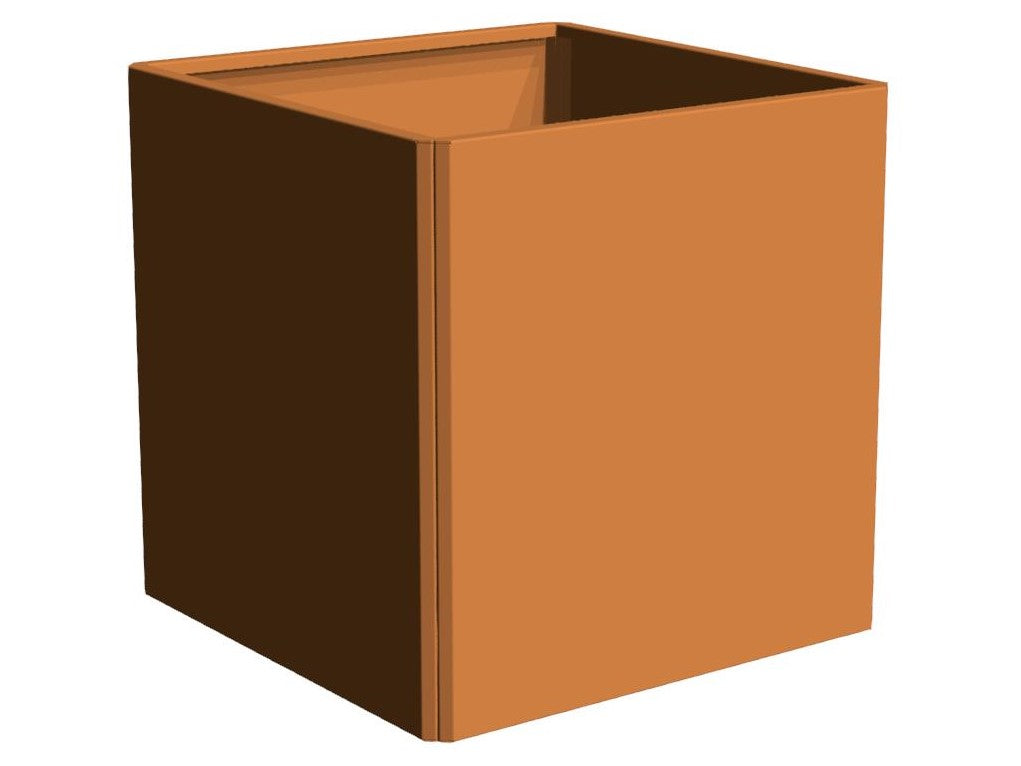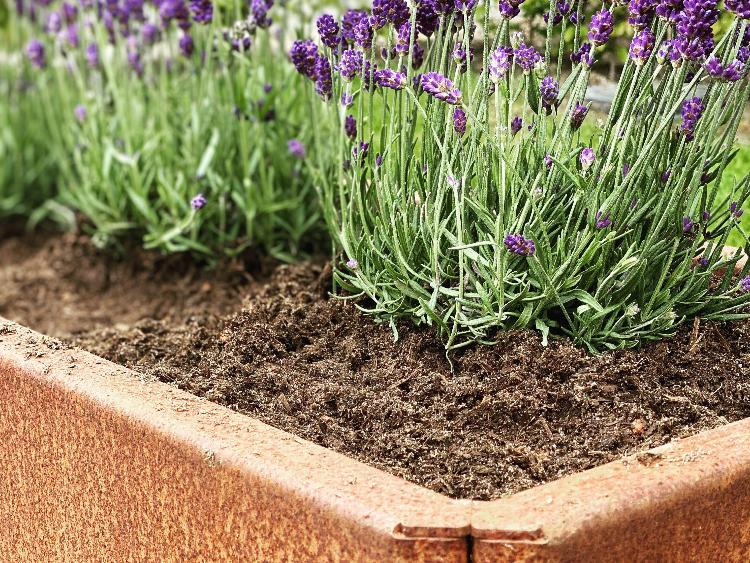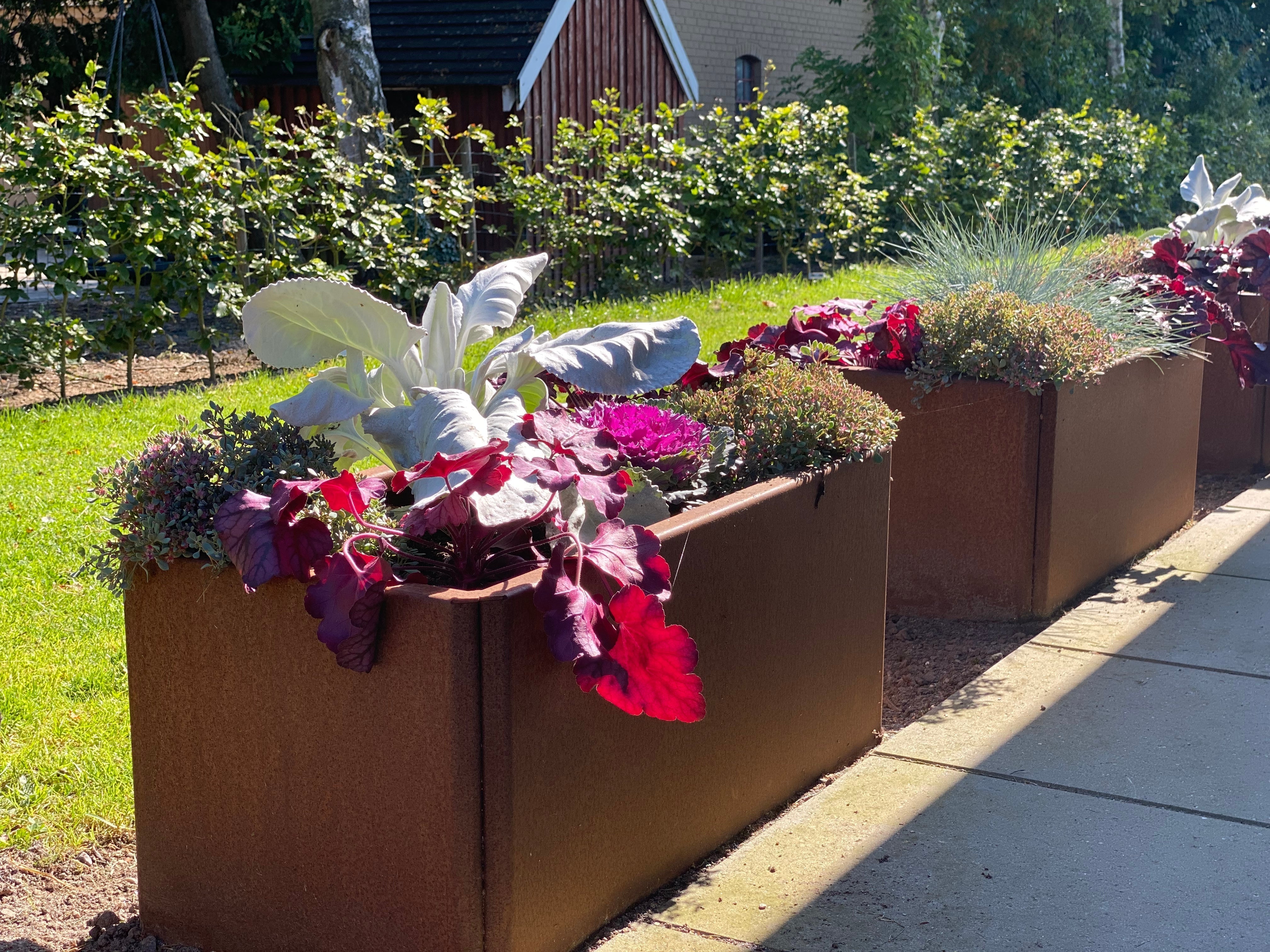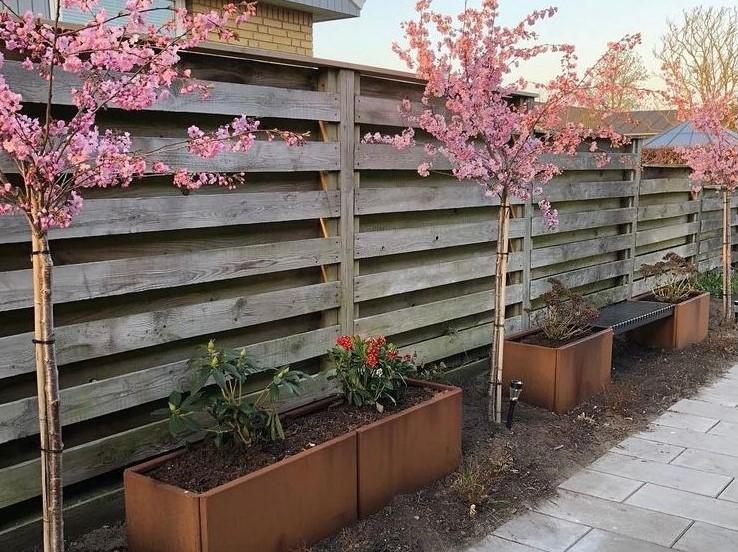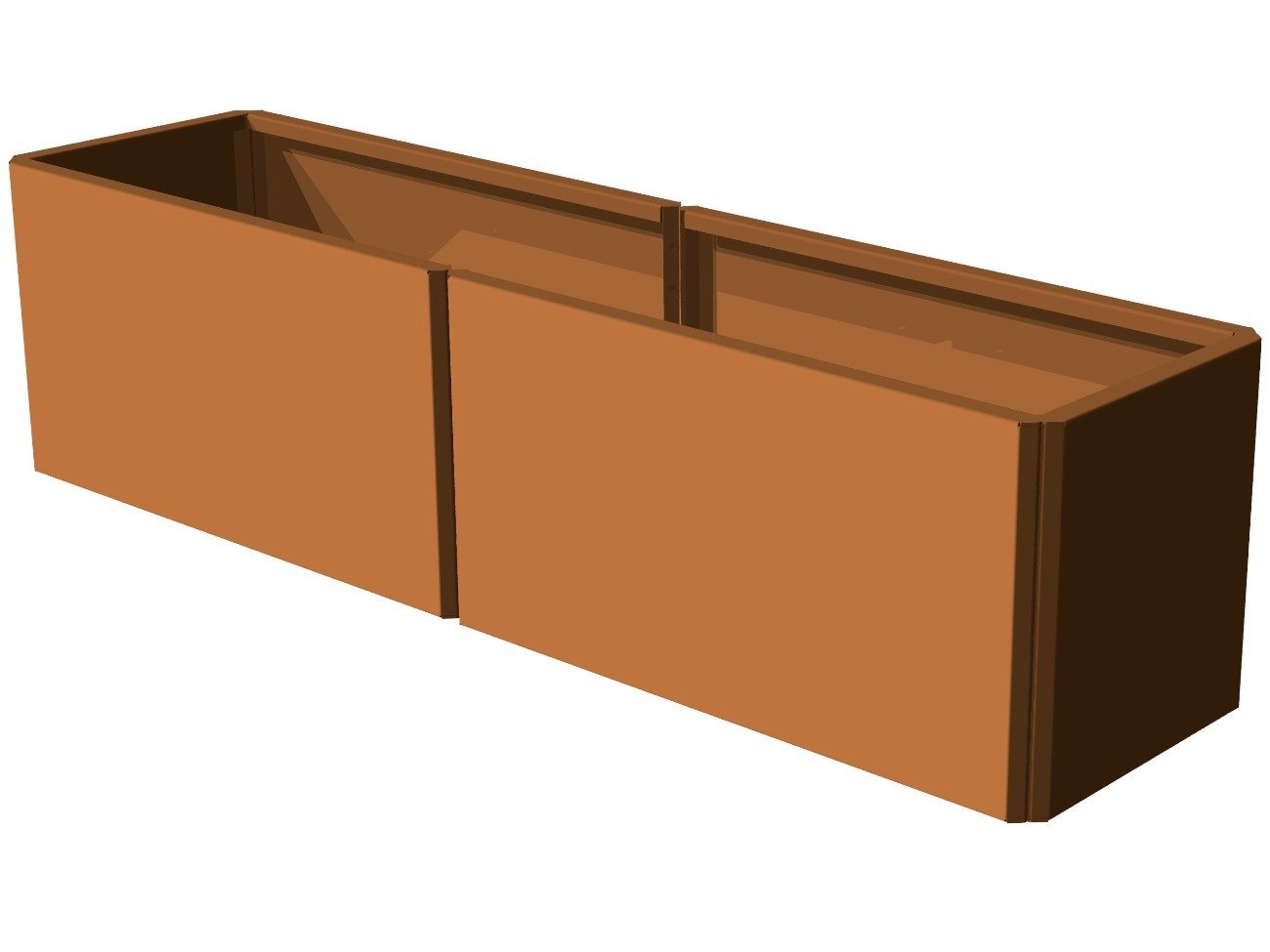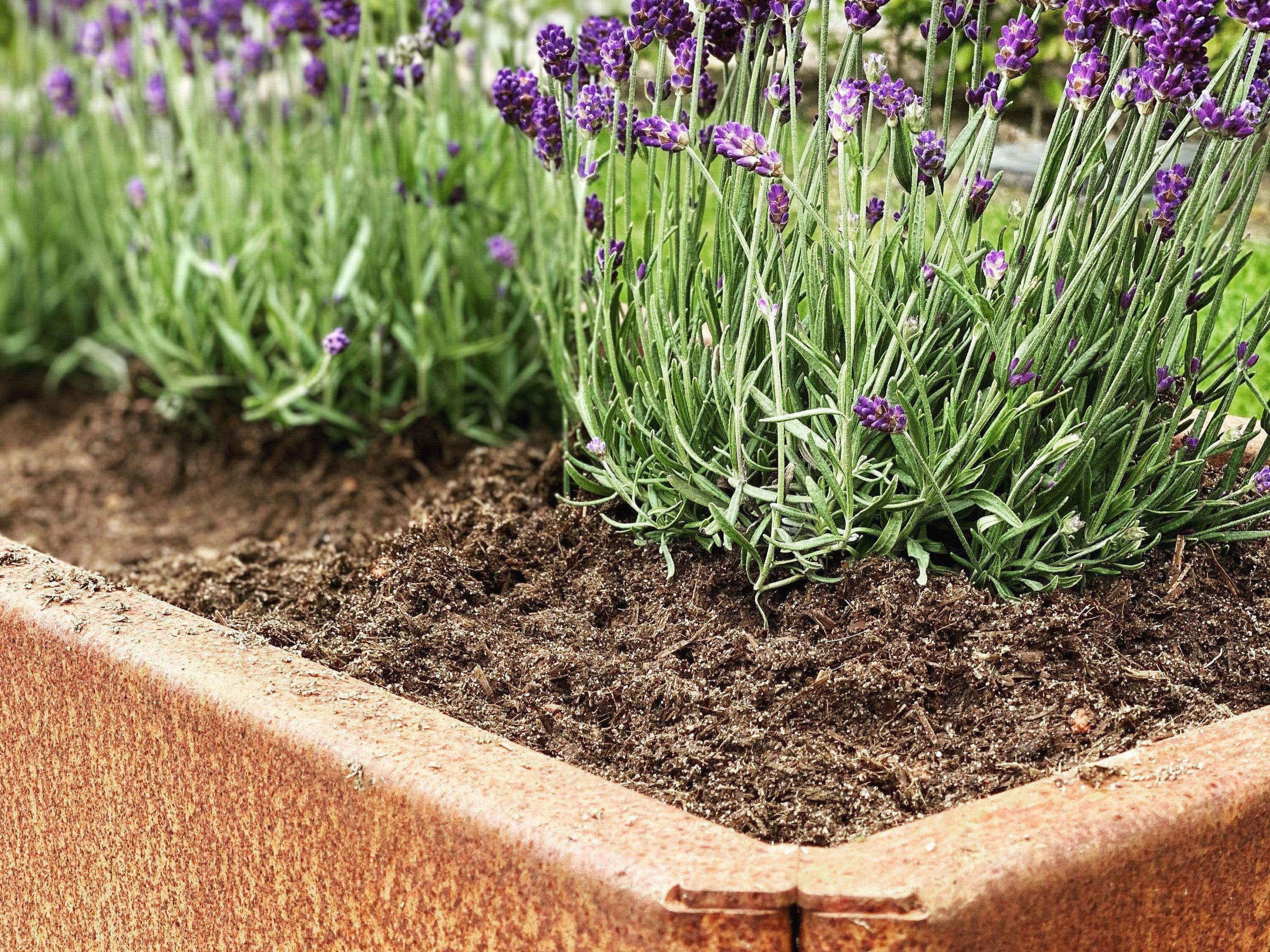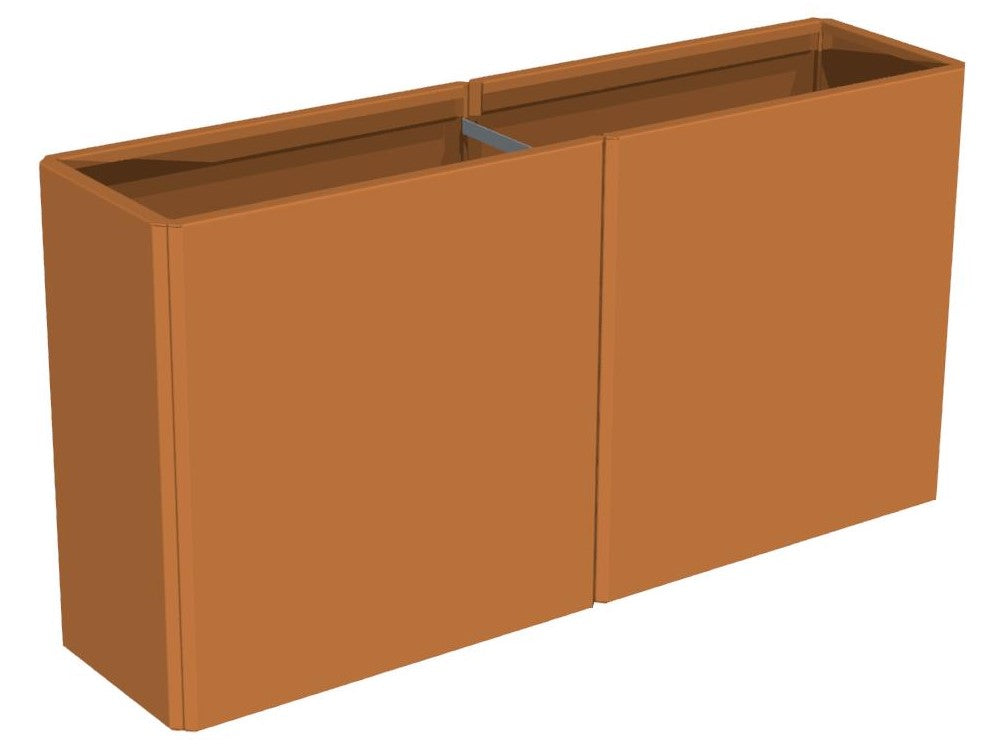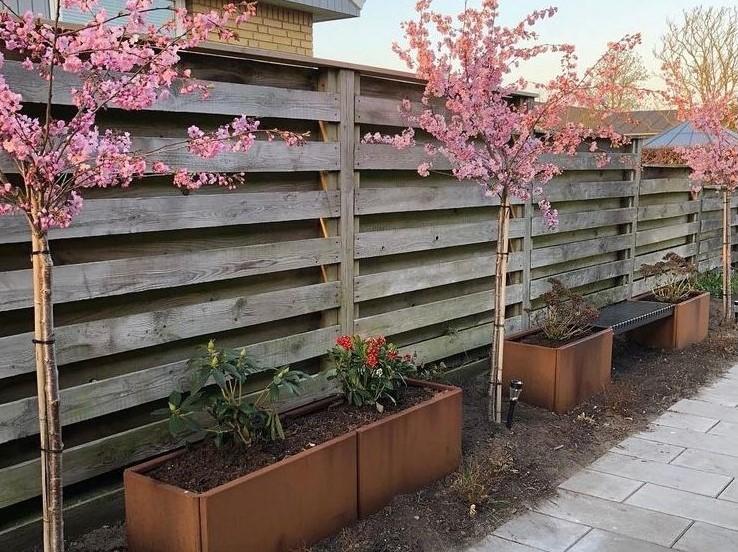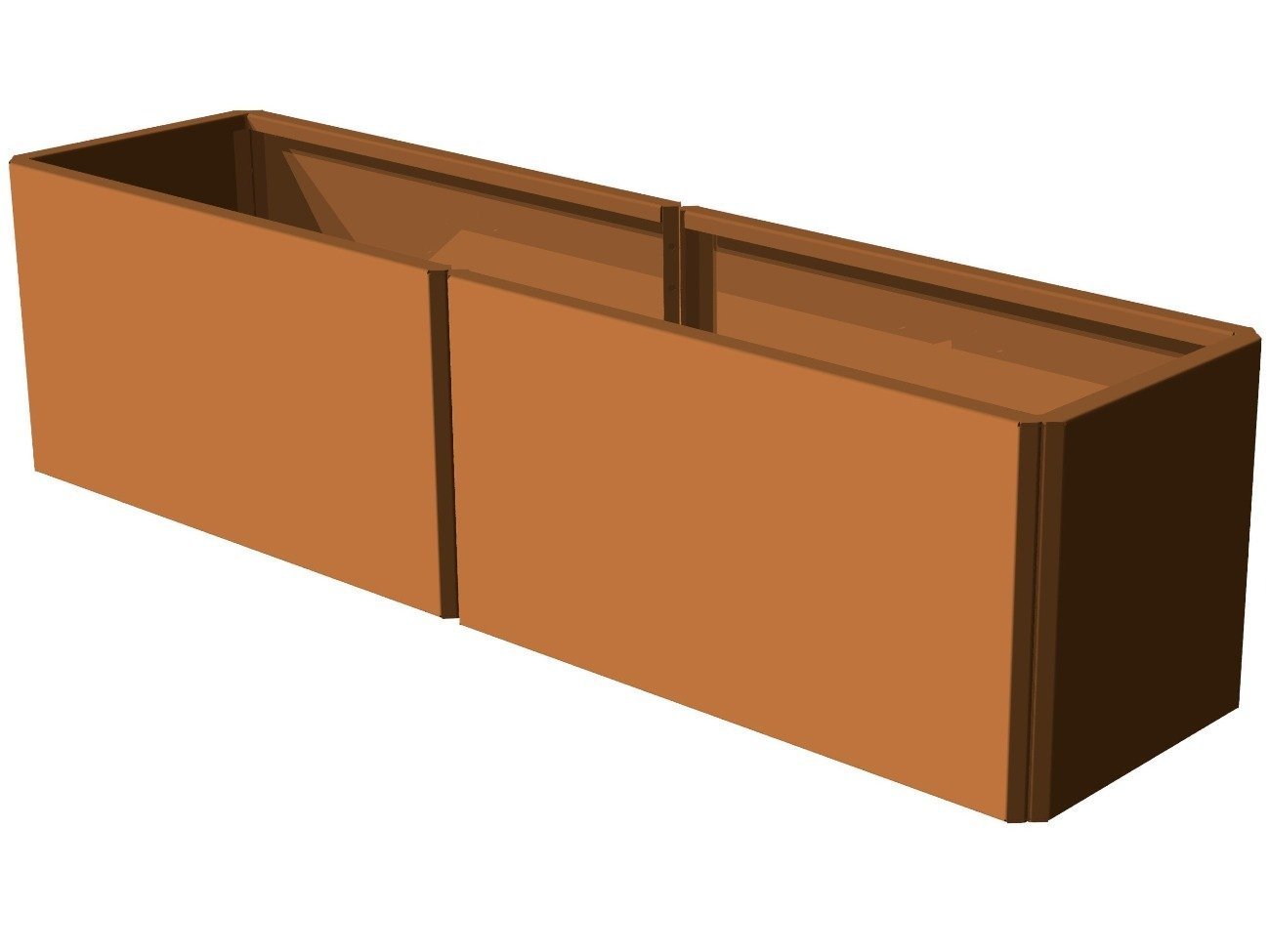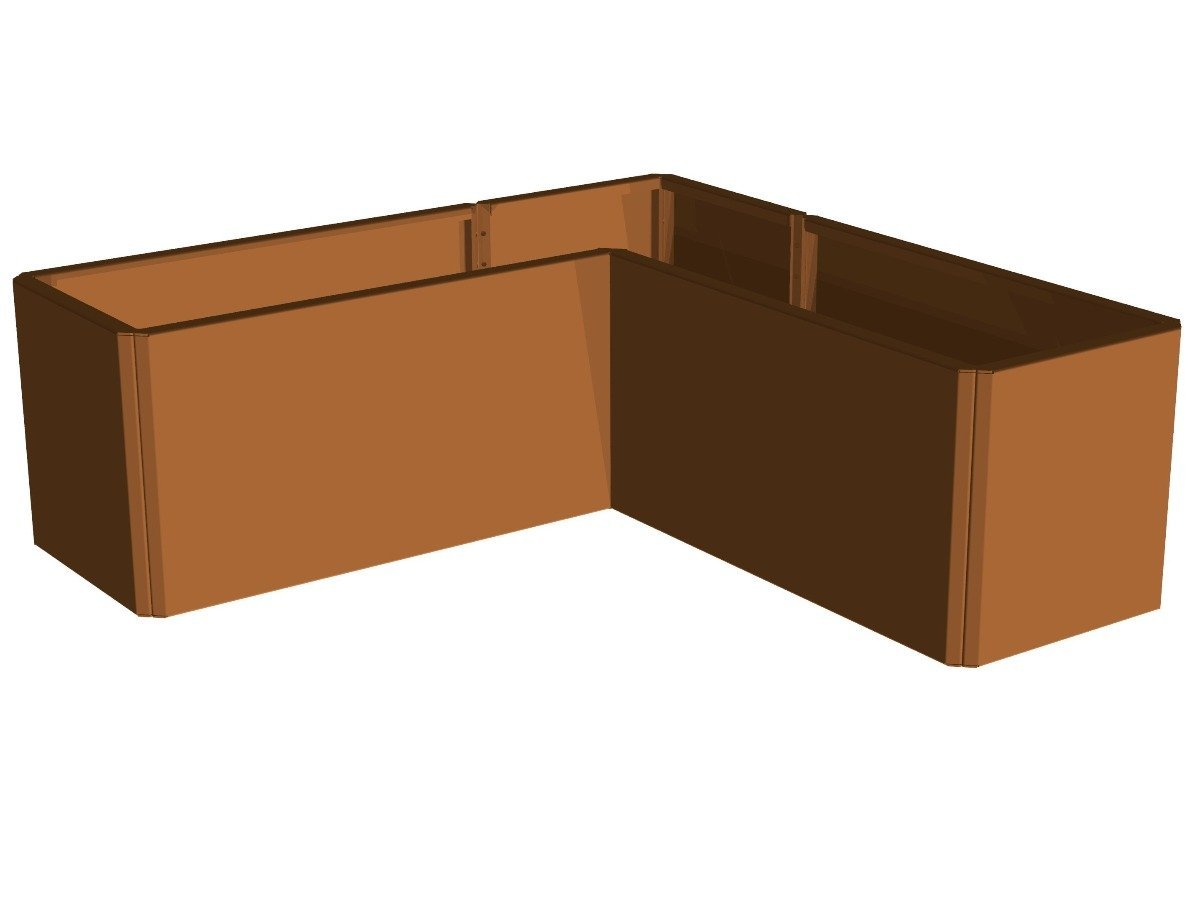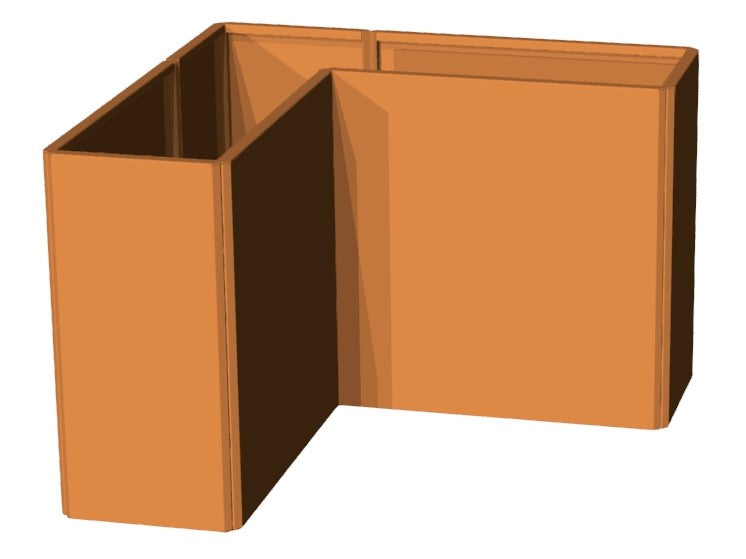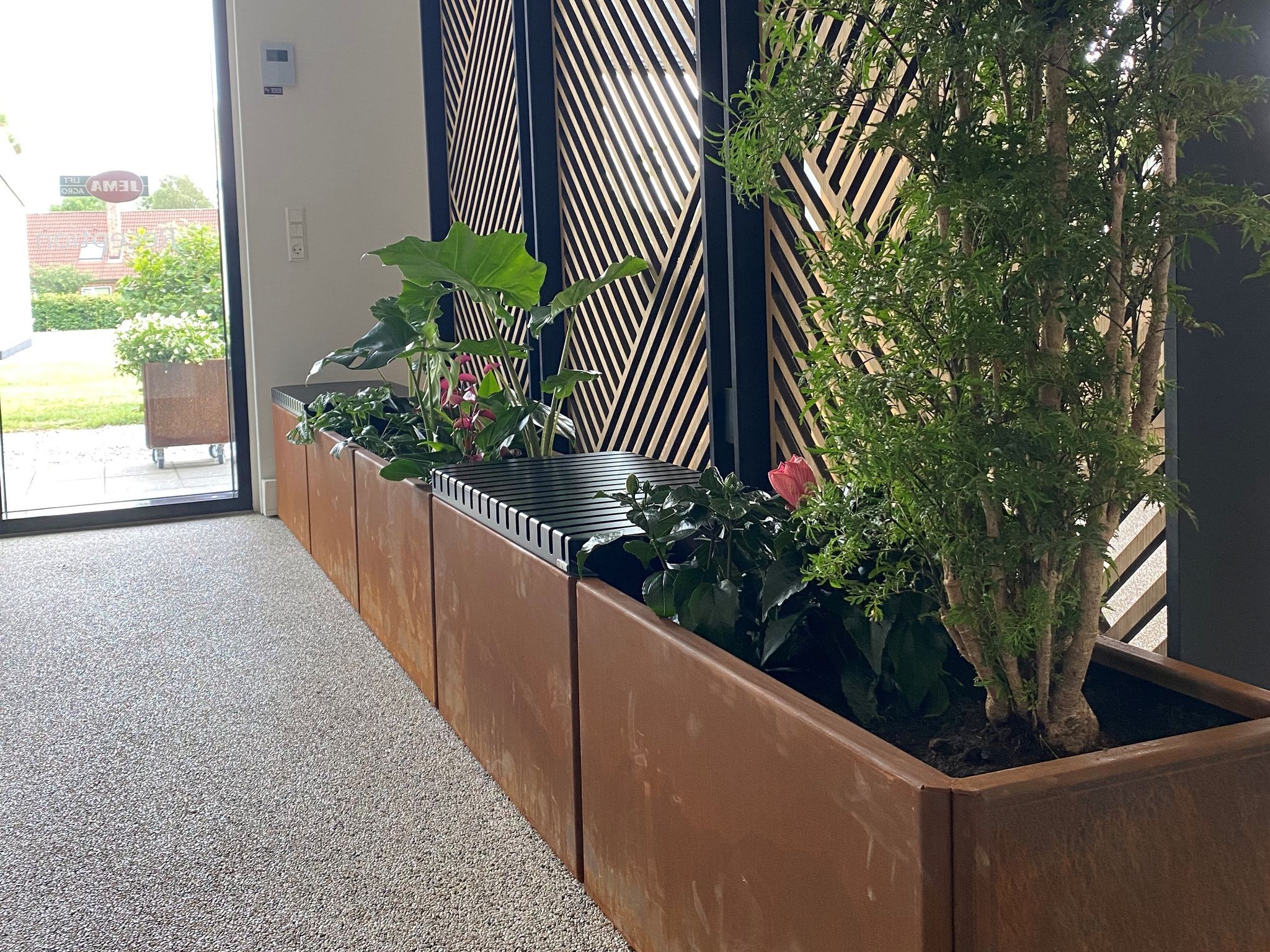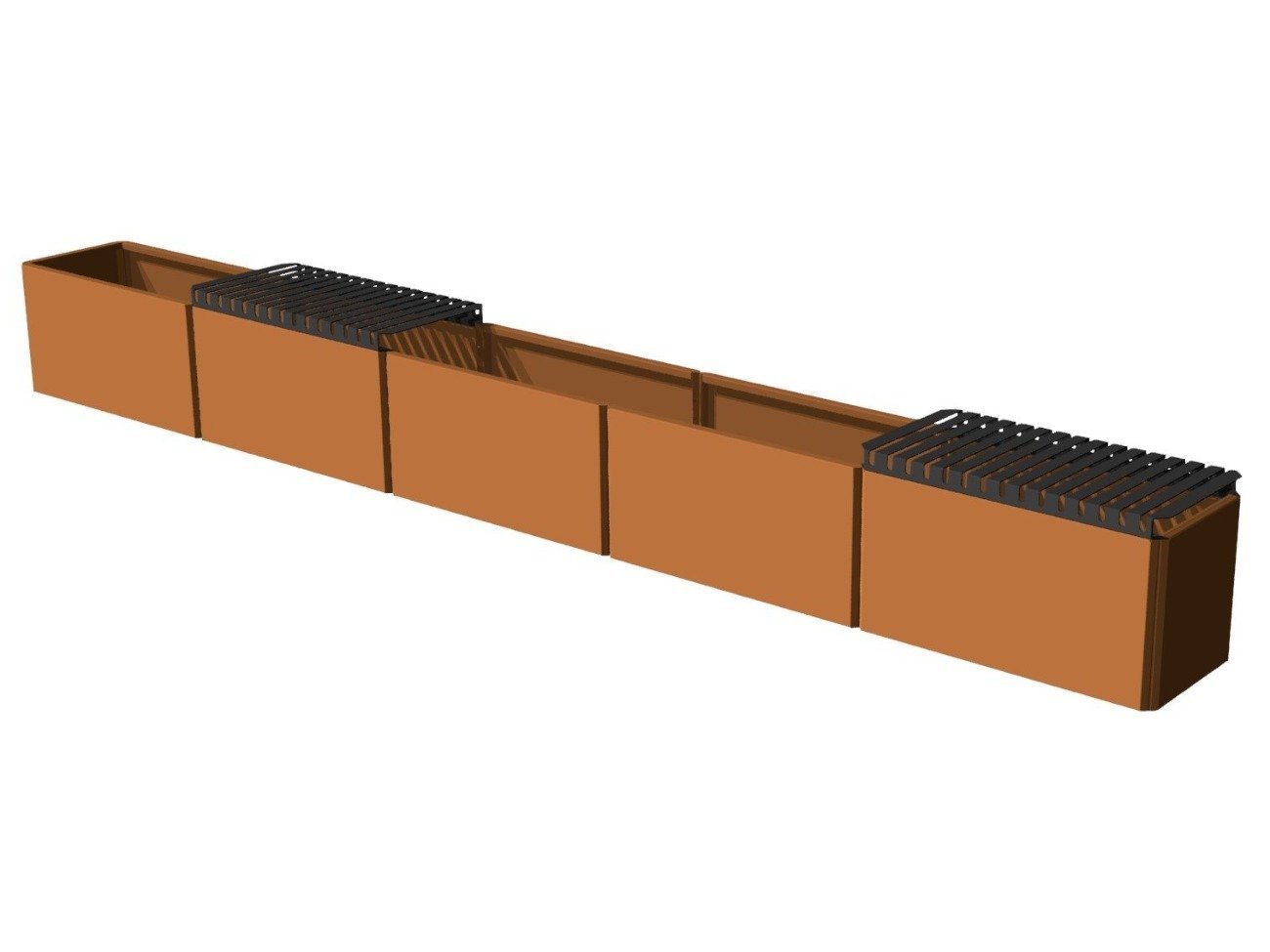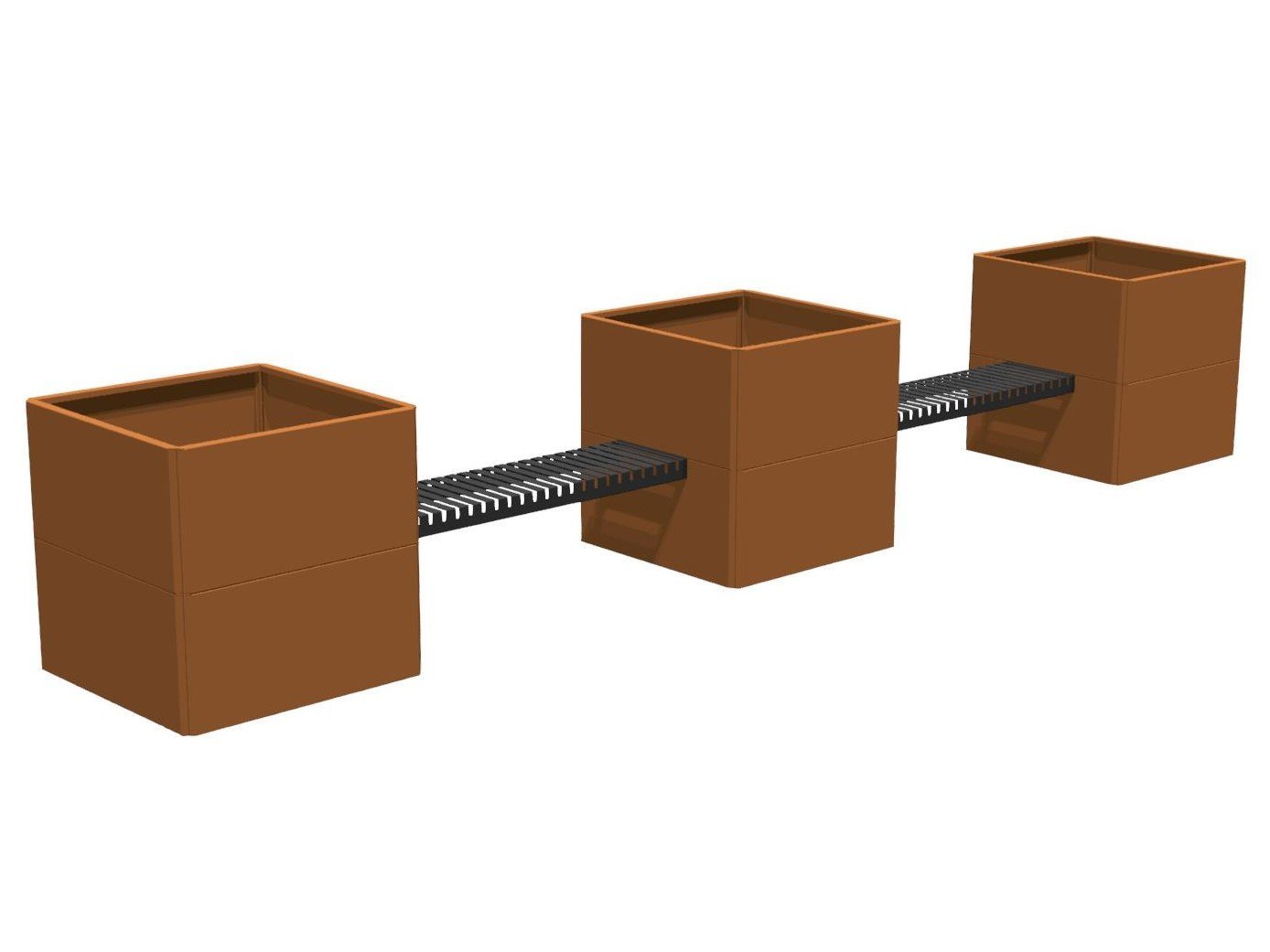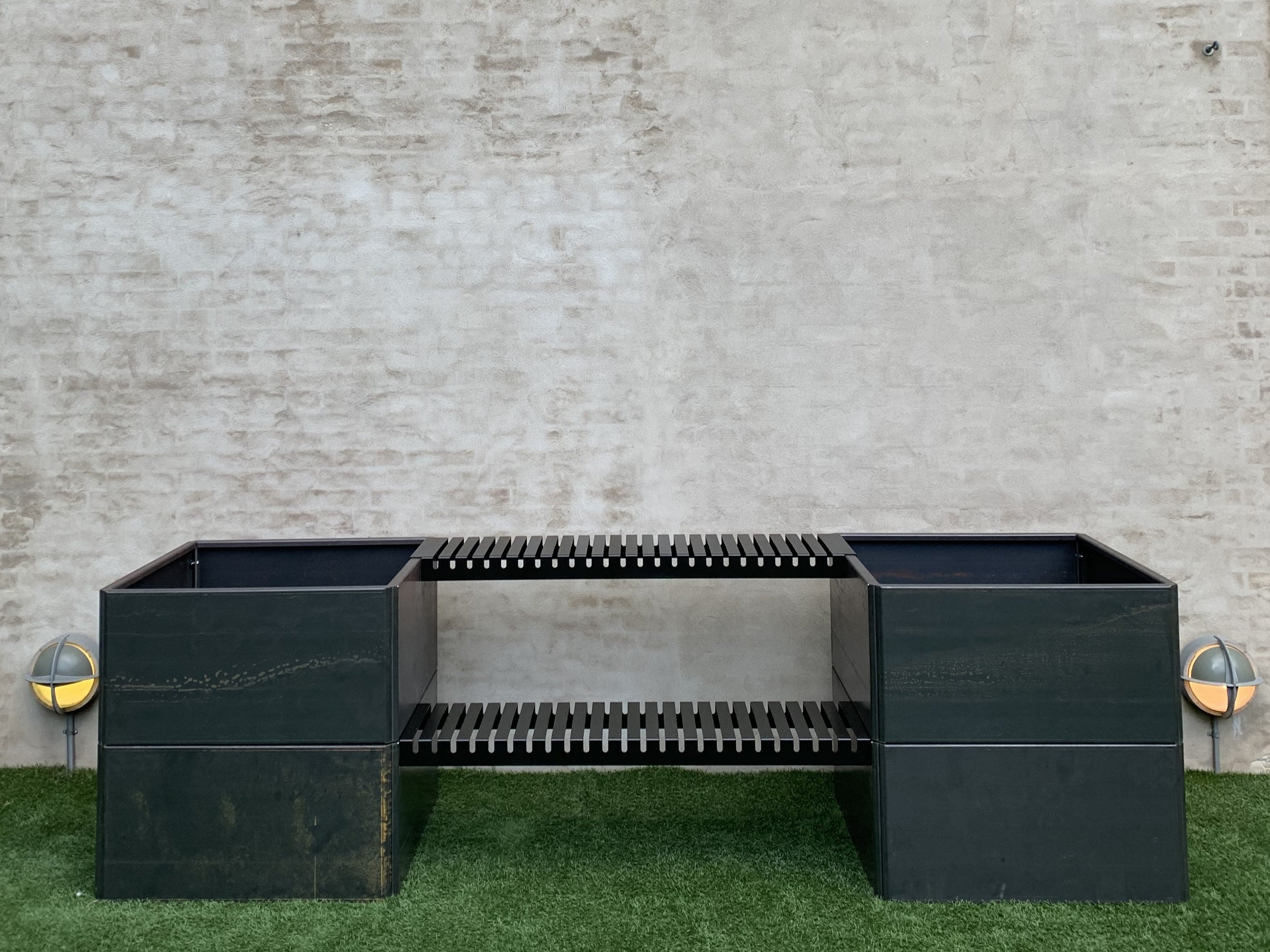Corten steel planter boxes EDGY
Discover the unique charm of our corten steel planters in EDGY design
The planters are made from 3 mm thick corten steel, which develops a beautiful golden rust look over time, adding character and warmth to your outdoor space. With a robust construction and a life expectancy of over 20 years, these planters are a long-term choice for your garden. Designed and manufactured in Denmark at our own factory.
Corten steel planters can be customized to suit your needs - choose between models with or without a base and add wheels for increased mobility.
Filters
Planter box corten steel EDGY 40 x 40 x 40 cm
Sale priceFrom €175,00 EUR
Planter box corten steel EDGY 40 x 40 x 80 cm
Sale priceFrom €245,00 EUR
Planter box corten steel EDGY 80 x 40 x 40 cm
Sale priceFrom €205,00 EUR
Planter box corten steel EDGY 80 x 40 x 80 cm
Sale priceFrom €375,00 EUR
Planter box corten steel EDGY 80 x 80 x 40 cm
Sale priceFrom €235,00 EUR
Planter box corten steel EDGY 80 x 80 x 80 cm
Sale priceFrom €465,00 EUR
Planter box corten steel EDGY 120 x 40 x 40 cm
Sale priceFrom €235,00 EUR
Planter box corten steel EDGY 157 x 40 x 40 cm
Sale priceFrom €345,00 EUR
Planter box corten steel EDGY 157 x 40 x 80 cm
Sale priceFrom €625,00 EUR
Planter box corten steel EDGY 237 x 40 x 40 cm
Sale priceFrom €405,00 EUR
Corner planter box corten steel EDGY 117 x 117 x 40 x 40 cm
Sale priceFrom €395,00 EUR
Corner planter box corten steel EDGY 117 x 117 x 40 x 80 cm
Sale priceFrom €745,00 EUR
Planter box corten steel EDGY with 2 x top 388 x 40 x 40 cm
Sale priceFrom €1.105,00 EUR
Planter box corten steel EDGY 3 pcs. 80x80x80 with 2 benches
Sale priceFrom €2.085,00 EUR

